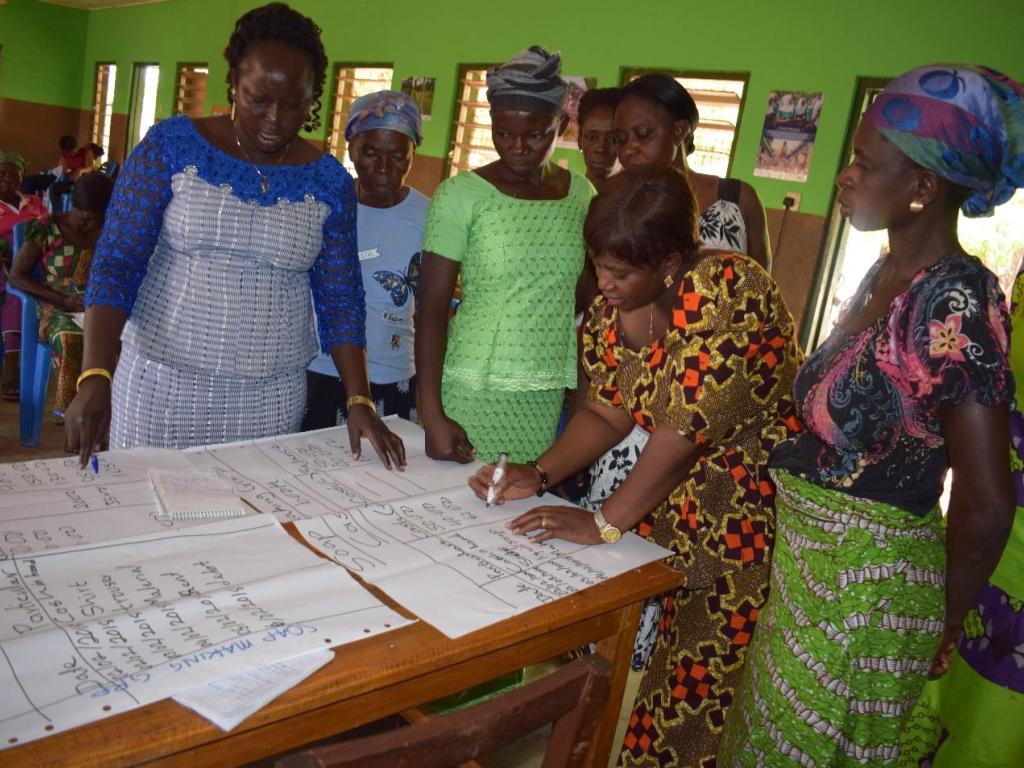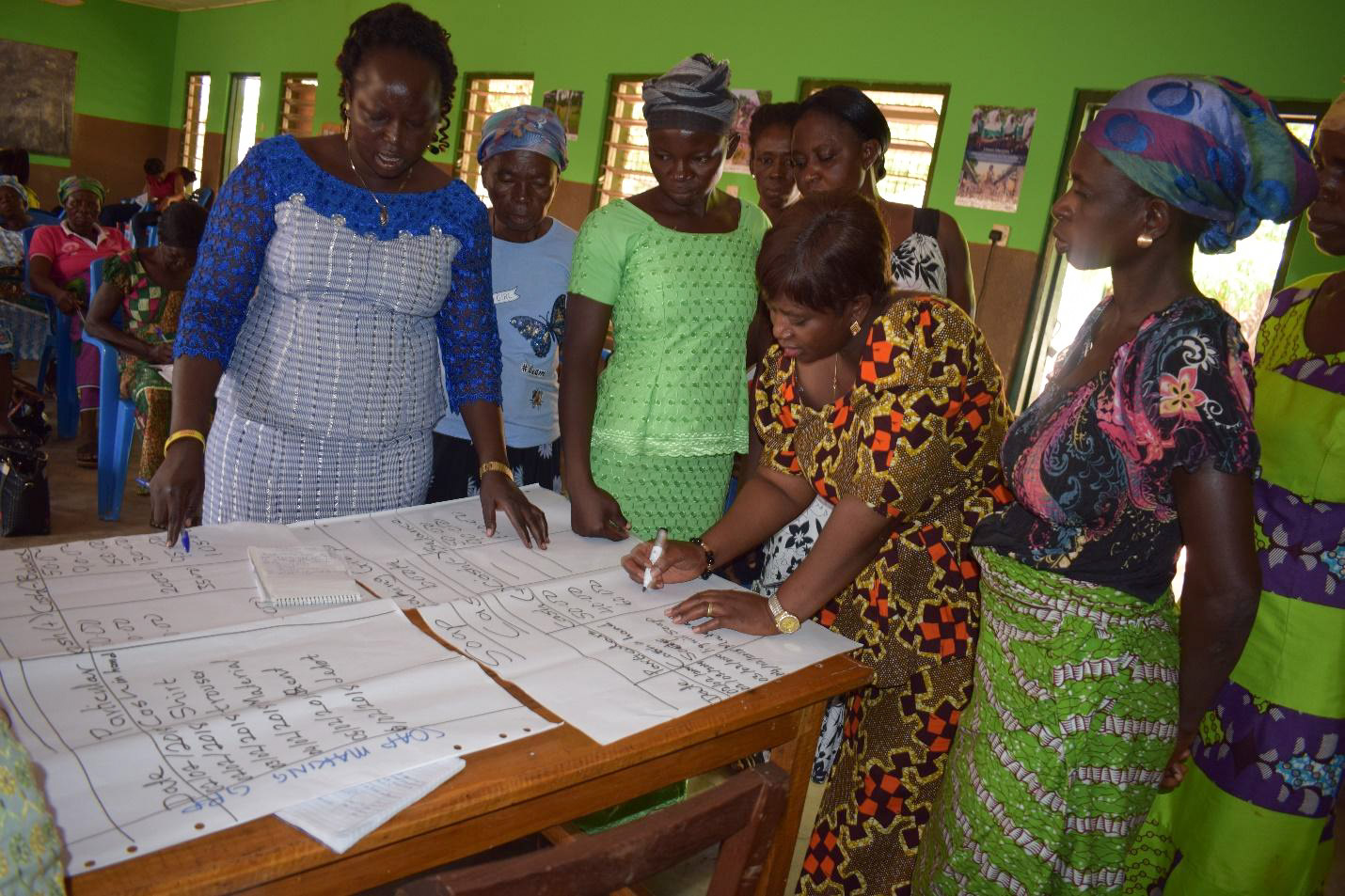Workshop promotes sound financial management to enhance women’s livelihoods in Ghana

By Rahinatu Sidiki Alare
Financial management and access to credit are some of the most critical elements for enhancing women’s livelihoods in semi-arid Ghana. Recognising this, ASSAR Ghana in collaboration with OXFAM GB organized a two-day workshop, in the last week of October, on financial record keeping and access to credit for women leaders of local self-help groups.

The workshop was part of a series of capacity building workshops, aimed at enhancing women’s adaptive capacities, implemented through the Grants for Local Adaptation Support (GLAS)* fund. Participants included 31 leaders of women self-help groups in both Lawra and Nandom districts. They were joined by gender desk officers and representatives from Business Advisory Centres, the Nandom Deanery Integrated Rural Development Programme, the Centre for Indigenous Knowledge and Organisational Development, and Lawra and Nandom rural banks.
Workshop highlights importance of financial record keeping
The women leaders were introduced to different types of financial record keeping -- such as keeping track of cash, stock and sales -- and using purchase books.They learned about the importance of financial record keeping, which is key for tracking performance of one’s livelihood activity and making better decisions about what to buy or sell.
Participants were also introduced to the importance of costing and pricing products. They gained skills for financial management and learned about cash flow, budgeting, and profit and loss statements. These are all key for accessing credit from financial institutions.
The second day of the workshop focused on how to access credit from financial institutions. The women leaders were taken through the process of acquiring credit from the Microfinance and Small Loans Centre, Lawra and Nandom rural banks, and other products and services offered by these institutions.

Women excited to use new financial knowledge
Some participants shared their excitement about the new knowledge they had acquired. They said it would help improve their livelihood activities. This is what Comfort Kambata, a gender desk officer from Lawra, had to say: "Aside [from] being a gender officer, I am involved in other petty businesses. I have always mixed up all the sales from these businesses and I am not able to keep a proper record of the performance of each business. With this new knowledge, I will be able to keep a proper financial record of my business and I will also share with other women groups under my jurisdiction."
Madam Anna Naab, who is from Nandom and is the leader of a group involved in Village Savings and Loan Schemes, noted that: "I am very impressed with the information on financial record keeping and how to access credit from the financial institutions. I learned that proper financial record keeping is key to accessing credit from financial institutions, which we barely considered. I also learned that it will be easier to access credit from these financial institutions in a group because we are in the informal sector and may not have the necessary documents to access credit individually. When I get back to my community, myself and my group will put our financial records in order and collectively go to access credit to enhance our livelihoods."
The workshop was part of a series of ASSAR Ghana’s Research into-Use (RiU) activities. These are a response to the adaptation challenges identified in ASSAR’s research activities and are in line with the ASSAR West Africa impact pathway on building skills and capacity of local champions who promote adaptation activities at the local level. Jamal Mohammadu, head of the Business Advisory Centre under the Nandom District Assembly, Thomas Gibentey, head of Microfinance of Nandom Rural Bank, and Yanbepone Perey, assistant project officer of the Lawra Rural Bank, co-facilitated the workshop.
*The GLAS grants recognise the need to go beyond academic capacity building within ASSAR to do more to strengthen the capacities of those living and working in the ASSAR study sites. These grant-funded activities draw on the findings of ongoing ASSAR research to support adaptation of the most vulnerable groups in each region.
Rahinatu Sidiki Alare is a technical officer with ASSAR, based at the University of Ghana.
First photo: women from a liquid soap making group develop a cash book for their products.
Second photo:Jamal Mohammadu facilitates the session on financial management and record keeping.